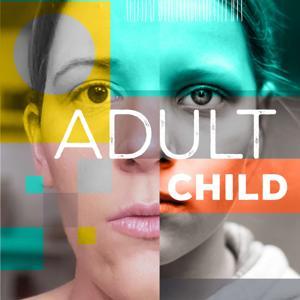What if you were certain you were perfectly healthy — but everyone around you insisted you had schizophrenia? This may not be denial; it could be anosognosia — a neurological symptom that prevents people from recognizing they have a mental illness.
In this special bonus episode, host Rachel Star Withers, who lives with schizophrenia, sits down with Dr. Xavier Amador, world-renowned psychologist and founder of the LEAP Institute, to unravel one of the most misunderstood symptoms in psychiatry.
Dr. Amador, author of the bestselling book “I Am Not Sick, I Don’t Need Help!,” shares the science behind anosognosia, why logic and education often fail, and how empathy and connection can bridge the gap between awareness and treatment. Drawing from his own family’s experience, Dr. Amador introduces the LEAP method (Listen, Empathize, Agree, Partner) — a revolutionary communication strategy proven to help loved ones accept treatment, even when they don’t believe they’re ill.
the brain science behind why some people can’t recognize their own illness
how to tell the difference between denial and anosognosia
why love and empathy — not confrontation — are the keys to connection
practical steps for families to rebuild trust and encourage treatmentThis episode offers understanding, hope, and tools for anyone supporting a loved one living with schizophrenia, bipolar disorder, or other serious mental illnesses.
Our guest, Dr. Xavier Amador, Founder and President of the LEAP Institute, is a world-renowned clinical psychologist, forensic expert, and author of 9 books, including the bestseller “I Am Not Sick, I Don’t Need Help!” His extensive work, books, and clinical research in schizophrenia, bipolar disorder, and other mental illnesses have been translated into 30 languages. Additionally, he has authored over 130 peer-reviewed scientific papers and has contributed his expertise to over 80 death penalty cases. He is also a family caregiver of two close relatives with schizophrenia and another with bipolar disorder.
Dr. Amador has trained tens of thousands of professionals and families on LEAP® (Listen-Empathize-Agree-Partner), a communication approach that creates trusting relationships with people who have serious mental illness and anosognosia.
Our host, Rachel Star Withers, (Link: www.rachelstarlive.com) is an entertainer, international speaker, video producer, and schizophrenic. She has appeared on MTV’s Ridiculousness, TruTV, NBC’s America’s Got Talent, Marvel's Black Panther, TUBI’s #shockfight, Goliath: Playing with Reality, and is the host of the HealthLine podcast “Inside Schizophrenia”. She grew up seeing monsters, hearing people in the walls, and having intense urges to hurt herself.
Rachel creates videos documenting her schizophrenia, ways to manage, and letting others like her know they are not alone and can still live an amazing life. She has created a kid’s mental health comic line, The Adventures of ____. (Learn more at this link: https://www.amazon.com/Adventures-Fearless-Unstoppable-Light-Ambitious/dp/B0FHWK4ZHS )
Fun Fact: She has wrestled alligators.
Our cohost, Gabe Howard, is an award-winning writer and speaker who lives with bipolar disorder. He is the author of the popular book, "Mental Illness is an Asshole and other Observations," available from Amazon; signed copies are also available directly from the author.
He also hosts the twice Webby honored podcast, Inside Bipolar, with Dr. Nicole Washington.
To learn more about Gabe, please visit his website, gabehoward.com.
Learn more about your ad choices. Visit megaphone.fm/adchoices






































